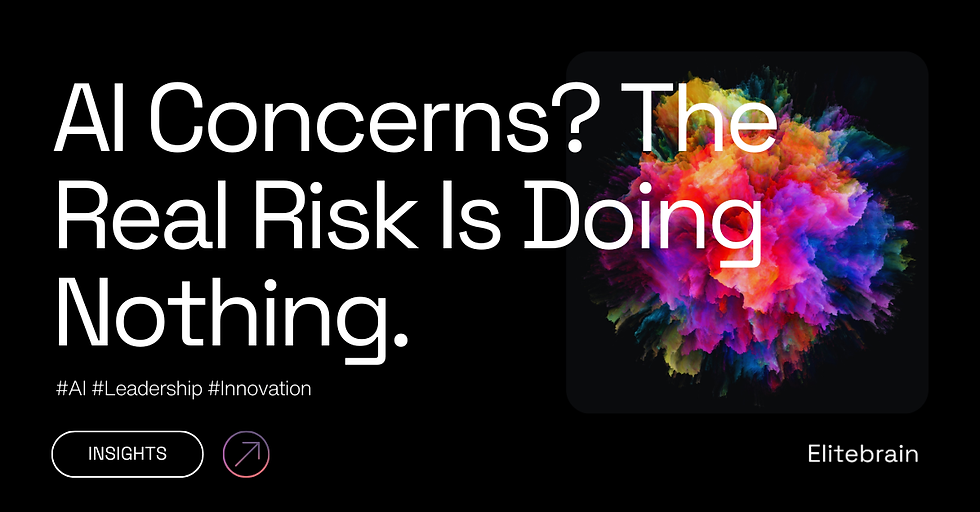AI Concerns? The Real Risk Is Doing Nothing.
- Delphine Seitiée
- Feb 10
- 2 min read
Updated: Apr 24
Reliability and privacy are the top AI fears—but they’re often excuses to resist change. Those who understand AI know it’s accelerating execution, not limiting it. Master it, don’t fear it.
Concerns surrounding artificial intelligence, particularly around reliability and privacy, are certainly present in organisational discussions. However, it's crucial to consider whether these anxieties are sometimes inadvertently used as reasons to resist the fundamental changes that AI can bring.
The real danger lies not in the technology itself, but in the paralysis of inaction. While some organisations remain in prolonged phases of strategic deliberation without taking concrete steps, the world around them is rapidly evolving. Those who possess a genuine understanding of AI recognise its potential to significantly accelerate execution, driving innovation and creating new possibilities.
The fear of potential pitfalls, such as data security breaches or unreliable algorithms, is understandable. Yet, focusing solely on these risks without actively engaging with AI means missing out on substantial opportunities for growth and efficiency. As those with AI expertise understand, the technology is a tool that, when mastered and implemented thoughtfully, enhances capabilities rather than restricts them.
Organisations that remain on the sidelines risk falling behind. The hesitancy to move beyond the theoretical can lead to a stagnation of progress and a failure to capitalise on the transformative power of AI. The imperative is not to be consumed by fear, but to actively engage, experiment, and build expertise. By doing so, organisations can develop the understanding and competence needed to navigate the challenges and harness the immense potential of artificial intelligence. The true risk, therefore, is not in confronting the complexities of AI, but in choosing the perceived safety of doing nothing while the future of work is being actively shaped.



